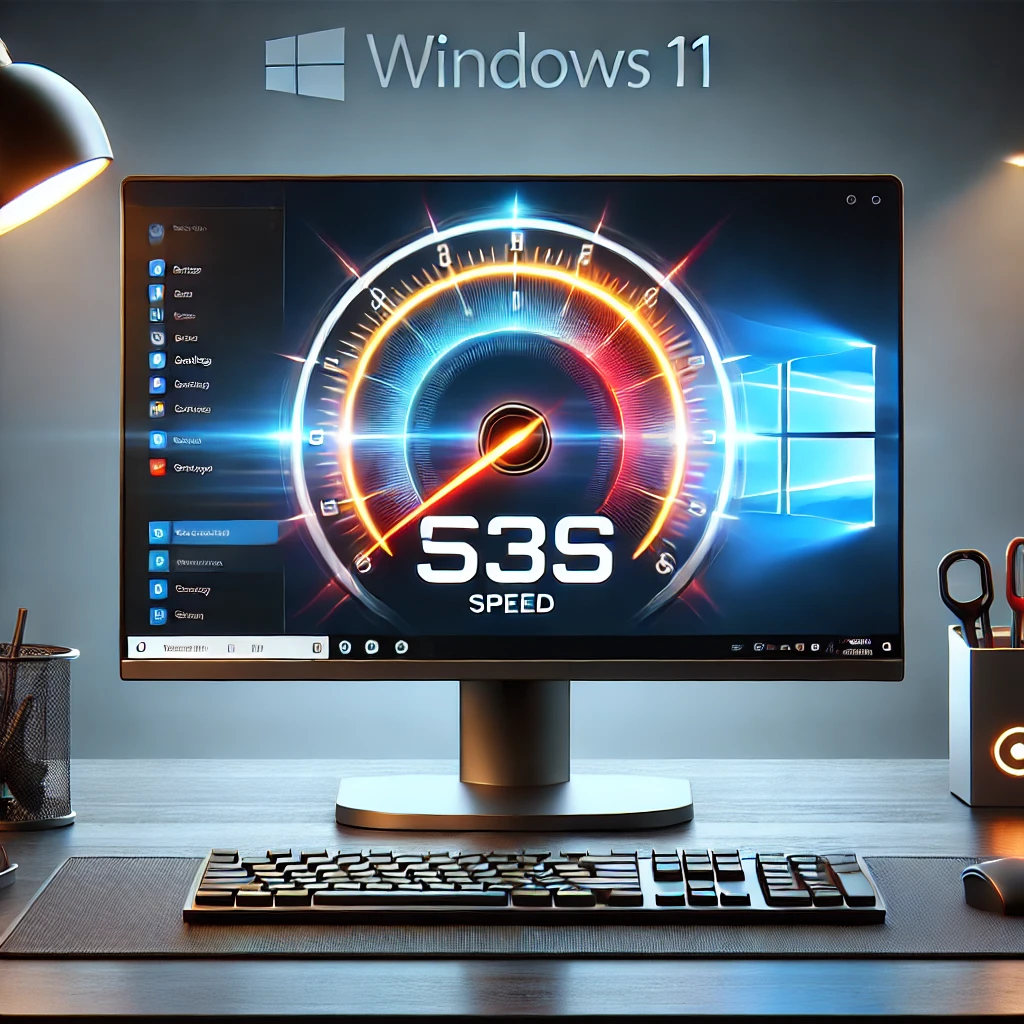
10 Quick Fixes to Speed Up Your Windows 11 PC
Introduction: Why Your Windows 11 PC Might Be Slow
Ever felt like your computer has slowed down to a crawl? It's frustrating, right? Especially when you're working on something important or just want to enjoy smooth gameplay. Windows 11 is a powerful operating system, but sometimes it can lag or become sluggish. But don't worry, we've got you covered! In this article, we’ll share 10 quick fixes to speed up your Windows 11 PC and get it running like new again.
1. Check for Updates: Always Keep Your PC Fresh
First things first, make sure that your Windows 11 is up to date. Microsoft frequently releases updates that include performance improvements and security patches. An outdated OS can slow down your system and even make it more vulnerable to security threats. Go to Settings > Update & Security > Windows Update, and check for any pending updates.
2. Uninstall Unnecessary Programs
Remove Bloatware and Free Up Space
When you first get a new PC, there’s usually a bunch of software pre-installed. While some of them might be useful, others could just be taking up space and consuming your system's resources. Head to Settings > Apps > Apps & Features, and uninstall programs you no longer need.
3. Disable Startup Programs
Let Your PC Boot Faster
Does your PC feel like it takes forever to boot up? One of the reasons for that might be too many programs starting automatically. To fix this, go to Task Manager (Ctrl + Shift + Esc), click on the Startup tab, and disable the programs that you don’t need running at startup. This will make your system start faster and use fewer resources.
4. Optimize Your Storage: SSD vs. HDD
Why SSDs Make a Huge Difference
If you’re still using a hard disk drive (HDD), upgrading to a solid-state drive (SSD) can be a game-changer for your system’s speed. SSDs are significantly faster than HDDs, leading to faster boot times, quicker file transfers, and smoother overall performance. If you haven’t made the switch yet, now might be the time!
5. Clean Up Your Hard Drive
Free Up Space for Better Performance
Over time, your hard drive accumulates unnecessary files like cache, temporary files, and old system restore points. Running a disk cleanup can help free up valuable space and improve performance. To do this, type “Disk Cleanup” in the Start menu and follow the prompts.
6. Adjust Your Power Settings
Get More Out of Your Battery or Performance
Windows 11 lets you choose between different power plans. If you’re using a laptop, you might have it set to Power Saver mode, which can throttle performance. Switch to the High-Performance power plan to boost your PC’s speed. You can find these settings under Control Panel > Power Options.
7. Disable Visual Effects for Better Speed
Turn Off Fancy Animations
Windows 11 comes with various visual effects that make your PC look sleek. However, these animations can take a toll on your system’s performance. To disable them, go to Settings > Performance Options and select “Adjust for best performance.” This will turn off unnecessary effects and give your system a speed boost.
8. Run a System Scan for Malware
Keep Your PC Safe and Fast
Malware can slow down your PC and put your personal data at risk. Running a full system scan with Windows Defender or another trusted antivirus program can help identify and remove any malicious software. Regularly scanning your system is essential for both performance and security.
9. Upgrade Your RAM: Boost Performance Instantly
More Memory Means More Speed
If your PC is still running slow, it might be time to upgrade your RAM. More memory allows your PC to run more programs simultaneously without lag. For most users, 8GB of RAM is sufficient, but if you do heavy multitasking or gaming, consider upgrading to 16GB or more.
10. Use Storage Sense to Automate Cleanups
Set It and Forget It
Windows 11 has a built-in feature called Storage Sense that can automatically clean up temporary files and other unnecessary data. To enable it, go to Settings > System > Storage and turn on Storage Sense. This will help keep your hard drive clean without you having to think about it.
Conclusion: Speed Up Your PC and Get Back to Work
By following these simple fixes, you can quickly speed up your Windows 11 PC and get back to enjoying a smooth, fast experience. Whether it’s by updating your system, removing unnecessary software, or upgrading your hardware, these steps will help you optimize your device and make the most of its performance. Remember, regular maintenance is key to keeping your PC running at its best!
FAQs
1. How can I improve my Windows 11 PC’s speed without upgrading hardware?
You can improve your PC’s speed by regularly cleaning your hard drive, disabling unnecessary startup programs, adjusting power settings, and turning off visual effects.
2. What is the difference between an SSD and an HDD?
An SSD is much faster than an HDD, leading to quicker boot times, faster file transfers, and better overall performance. Upgrading to an SSD can significantly improve your PC’s speed.
3. Does upgrading my RAM improve Windows 11 performance?
Yes, upgrading your RAM allows your system to handle more tasks at once, improving performance, especially for multitasking and gaming.
4. How often should I run a disk cleanup on my PC?
Running a disk cleanup once a month is a good practice to remove unnecessary files and free up space for better performance.
5. Can using a VPN slow down my PC?
While using a VPN can slightly reduce your internet speed, it’s a great tool for protecting your privacy and securing your personal data online.